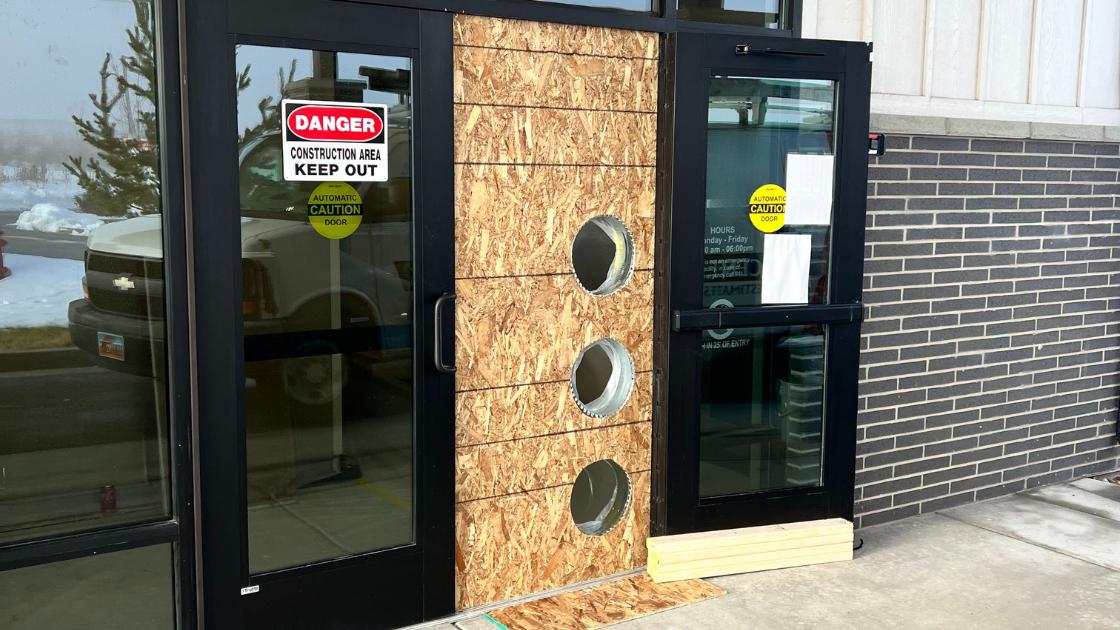Transform Your Healthcare Space with CRC's Specialized Construction and Renovation Solutions
With our extensive experience and in-depth knowledge of the distinctive needs of healthcare settings, CRC's Healthcare Team provides construction and renovation services that cater to hospitals and healthcare facilities. Explore our specialized services in the following areas:
Pharmacy Renovations
Behavioral Health Unit Renovations
Central Sterile Renovations
Medical Suite Buildouts
Med-Gas Improvements
Kitchen & Cafeteria Renovations
General Medical Construction
Joint Commission Survey Corrections
Expertise in Healthcare Construction.
We offer specialized construction services for hospitals and healthcare facilities, where every aspect of the project is carefully considered from design to execution. With ICRA and ASHE certifications, we ensure adherence to infection control, patient, visitor and staff safety, and operational continuity standards throughout the construction process. Take a look at some of our recent successful projects.
CRC partnered with National Park Medical Center in Hot Springs, AR to renovate their Behavioral Health Unit. The project was supported by TMPartners architecture firm based in Brentwood, TN. CRC’s partnership with the client began with supporting budget development and providing a full complement of pre-construction services. The scope of this project included plumbing, fixture, and code compliance upgrades throughout the ~10,000 sf facility. CRC’s commitment to the communities that we work in allowed many of the subcontractors involved in this project to be local to the area of the project.
During the project, Hot Springs experienced unprecedented freezing temperatures resulting in frozen water pipes outside the construction area. CRC assisted the facility through this challenging time and was able to still deliver this multi-phase project on schedule in May of 2023.
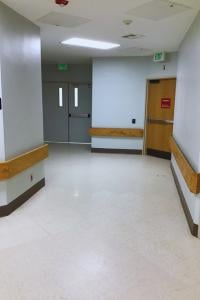

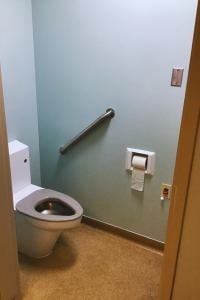
CRC partnered with Castleview Hospital in Price, UT to renovate one of their radiology rooms and support the installation of a new state of the art piece of radiology equipment. The project was supported by E4H architecture firm based in Dallas, TX. The scope of this project included demolition of existing room components, a full renovation of the room, and site preparation for the new equipment. CRC’s commitment to the communities we work in allowed for all of the subcontractors involved in this project to be local to the area of the project. The project was delivered ahead of schedule in March of 2023.
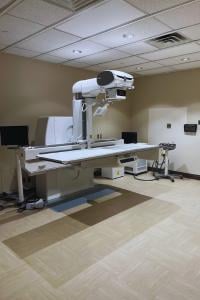
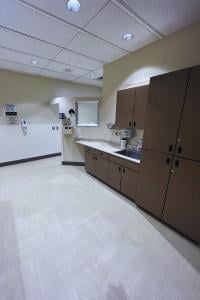
CRC partnered with Starr Regional Medical Center in Athens, TN to complete a buildout of a Medical Office Building Suite. The project was supported by HMK architecture firm based in Brentwood, TN. CRC’s partnership with the client began with supporting budget development and providing a full complement of pre-construction services. The scope of this project included demolition and full renovation and fixture upgrade throughout the ~1500 sf facility. CRC’s commitment to the communities that we work in allowed for all of the subcontractors involved in this project to be local to the area of the project.
The project timeline provided by the client required CRC to meet very tight deadlines and a fixed delivery date. CRC delivered the project on scheduled in July of 2023.
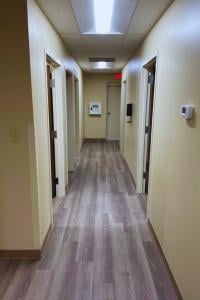
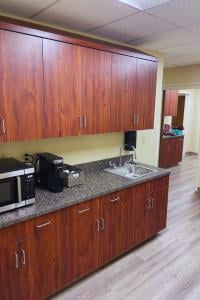
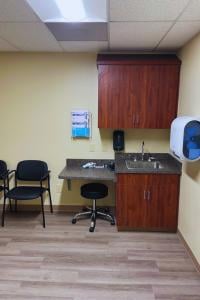
Building with Safety in Mind: Infection Control in Healthcare Facilities
Infection control is of paramount importance in healthcare facility construction. As healthcare-associated infections (HAIs) continue to pose risks to patients, staff, and visitors, it is crucial to address this critical issue during the construction and design phases of healthcare facilities.
-
1. The Impact of Infections on Healthcare Facilities
- Understanding the consequences of HAIs on patient outcomes, healthcare costs, and reputation.
- Exploring the prevalence and types of infections in healthcare settings.
- Highlighting the importance of infection control in healthcare facility design and construction to mitigate risks.
-
2. Designing for Infection Control
- Incorporating evidence-based design principles that mitigate infection risks, such as clear circulation paths, adequate spacing, and optimal room layouts.
- Optimizing spatial layout and traffic flow to minimize cross-contamination opportunities.
- Utilizing technologies like computerized modeling and simulation to evaluate design choices and identify potential infection control issues.
-
3. Ventilation and Filtration Systems
- Engineering ventilation systems that promote effective air exchange and filtration.
- Utilizing high-efficiency particulate air (HEPA) filters and ultraviolet germicidal irradiation (UVGI) for air purification.
- Considering the use of displacement ventilation systems and laminar airflow in critical areas to reduce airborne transmission risks.
-
4. Surface Materials and Finishes
- Selecting antimicrobial and easy-to-clean materials for high-touch surfaces, such as door handles, countertops, and handrails.
- Evaluating the effectiveness of copper-infused surfaces in reducing microbial contamination.
- Promoting the use of non-porous materials to minimize microbial harborage areas and facilitate effective cleaning and disinfection.
-
5. Plumbing and Water Management
- Designing plumbing systems to prevent waterborne infections, including Legionella.
- Implementing strict water management protocols, including temperature monitoring, flushing schedules, and water quality testing.
- Incorporating backflow prevention measures to mitigate cross-contamination risks.
-
6. Construction Practices for Infection Control
- Establishing construction protocols to minimize dust, debris, and microbial spread during the construction process.
- Utilizing temporary barriers and negative air pressure zones during construction to prevent the spread of contaminants.
- Conducting regular cleaning and disinfection to maintain a hygienic construction site and prevent cross-contamination.
-
7. Training and Collaboration
- Educating construction teams, architects, and contractors on infection control protocols and best practices.
- Encouraging collaboration between infection control specialists, architects, and engineers to ensure the seamless integration of infection control measures.
- Fostering a culture of infection prevention through interdisciplinary training programs and ongoing education.
-
8. Post-Construction Monitoring and Evaluation
- Conducting post-construction surveillance to assess the effectiveness of infection control measures.
- Implementing ongoing monitoring and evaluation programs to identify and address potential vulnerabilities.
- Leveraging technology and data analytics for real-time monitoring of infection rates and trends, allowing for timely interventions and improvements.
What People Say About CRC.
Customer service still exists. Communication was great but most importantly, you cannot tell there was ever a flood in any of the 7 units they did. The staff of CRC is personable and knowledgeable. Nic and Jordan go so far above and beyond. Super pleased customer for sure.




